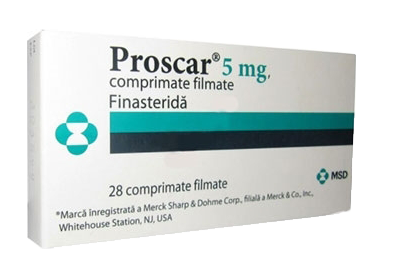What is Proscar?
Proscar prevents the conversion of testosterone to dihydrotestosterone (DHT) in the body. DHT is involved in the development of benign prostatic hyperplasia (BPH).
Proscar is used to treat symptoms of benign prostatic hyperplasia (BPH) in men with an enlarged prostate.
Proscar may also be used for purposes not listed in this medication guide.
Important information
Proscar should never be taken by a woman or a child. Finasteride can be absorbed through the skin, and women or children should not be permitted to handle Proscar tablets.
Although Proscar is not for use by women, this medication can cause birth defects if a woman is exposed to it during pregnancy. Proscar tablets should not be handled by a woman who is pregnant or who may become pregnant. If a woman accidentally comes into contact with this medication from a broken or crushed tablet, wash the area with soap and water right away.
Before taking Proscar, tell your doctor if you have ever had an allergic reaction to finasteride, or to a similar medicine called dutasteride (Avodart).
Using Proscar may increase your risk of developing prostate cancer. Your doctor will perform tests to make sure you do not have other conditions that would prevent you from safely using Proscar.
Call your doctor at once if you notice any breast lumps, pain, nipple discharge, or other breast changes. These may be signs of male breast cancer.
Before taking this medicine
Proscar should never be taken by a woman or a child. Finasteride can be absorbed through the skin, and women or children should not be permitted to handle Proscar tablets.
To make sure you can safely take Proscar, tell your doctor if you have any of these other conditions:
liver disease, or abnormal liver enzyme tests;
prostate cancer;
a bladder muscle disorder;
stricture of your urethra;
if you are unable to urinate; or
if you have ever had an allergic reaction to a similar medicine called dutasteride (Avodart).
Using Proscar may increase your risk of developing prostate cancer. Your doctor will perform tests to make sure you do not have other conditions that would prevent you from safely using finasteride.
Although Proscar is not for use by women, this medication can cause birth defects if a woman is exposed to it during pregnancy. Proscar tablets should not be handled by a woman who is pregnant or who may become pregnant. If a woman accidentally comes into contact with this medication from a broken or crushed tablet, wash the area with soap and water right away.
How should I take Proscar?
Take Proscar exactly as prescribed by your doctor. Do not take it in larger amounts or for longer than recommended. Follow the directions on your prescription label.
Take this medicine with a full glass of water.
Proscar can be taken with or without food. Take the medicine at the same time each day.
To be sure Proscar is helping your condition and not causing harmful effects, your blood may need to be tested often. Your doctor will also test your prostate specific antigen (PSA) to check for prostate cancer. Visit your doctor regularly.
Use Proscar regularly to get the most benefit. Get your prescription refilled before you run out of medicine completely.
Store Proscar at room temperature away from moisture, heat, and light. Keep the bottle tightly closed when not in use.
What happens if I miss a dose?
Take the missed dose as soon as you remember. Skip the missed dose if it is almost time for your next scheduled dose. Do not take extra medicine to make up the missed dose.
What happens if I overdose?
Seek emergency medical attention.
What should I avoid?
Avoid getting up too fast from a sitting or lying position, or you may feel dizzy. Get up slowly and steady yourself to prevent a fall.
Proscar side effects
Get emergency medical help if you have any of these signs of an allergic reaction to Proscar: hives; difficulty breathing; swelling of your face, lips, tongue, or throat. Call your doctor at once if you notice any breast lumps, pain, nipple discharge, or other breast changes. These may be signs of male breast cancer.
Less serious Proscar side effects may include:
impotence, loss of interest in sex, or trouble having an orgasm;
abnormal ejaculation;
swelling in your hands or feet;
swelling or tenderness in your breasts;
dizziness, weakness;
feeling like you might pass out;
headache;
runny nose; or
skin rash.
The sexual side effects of Proscar (decreased libido, trouble having an erection, ejaculation problems) may continue after you stop taking this medication. Talk to your doctor if you have concerns about these side effects.
This is not a complete list of side effects and others may occur. Call your doctor for medical advice about side effects.
What other drugs will affect Proscar?
There may be other drugs that can interact with Proscar Tell your doctor about all medications you use. This includes prescription, over-the-counter, vitamin, and herbal products. Do not start a new medication without telling your doctor.


